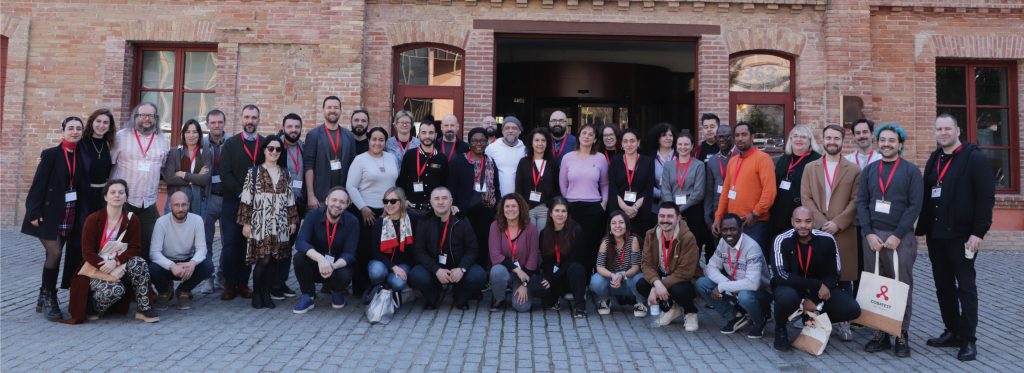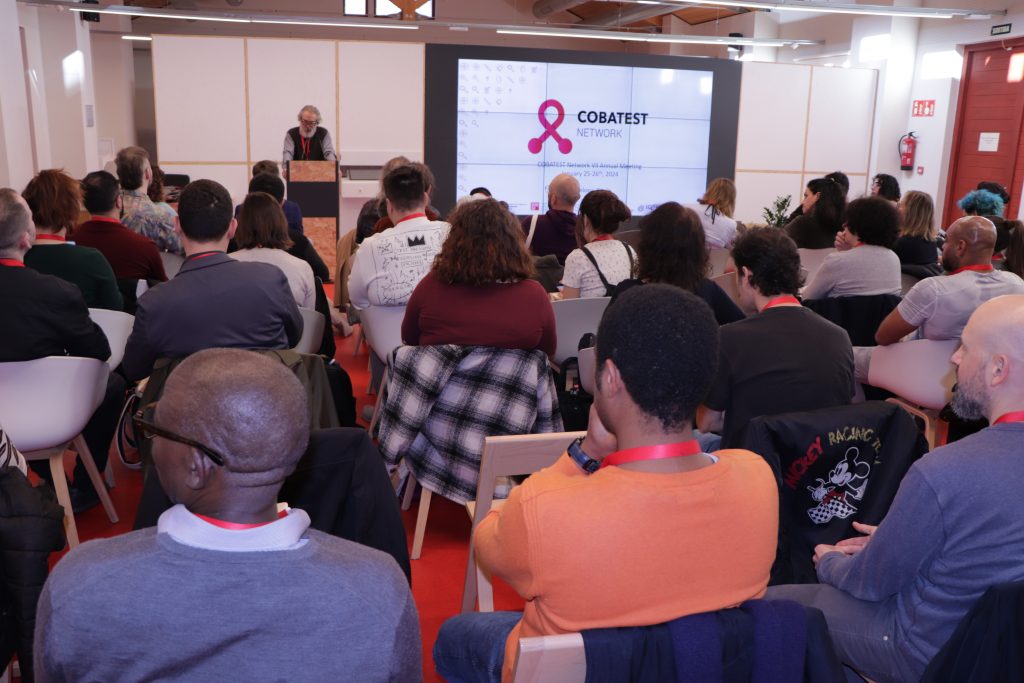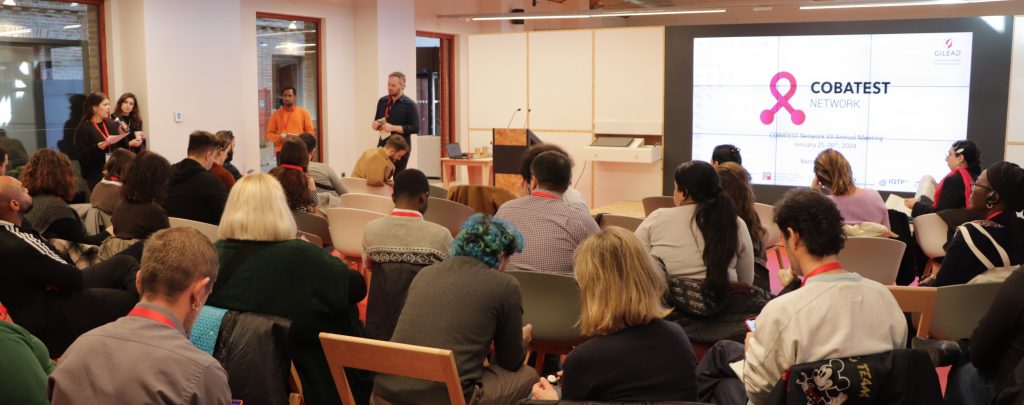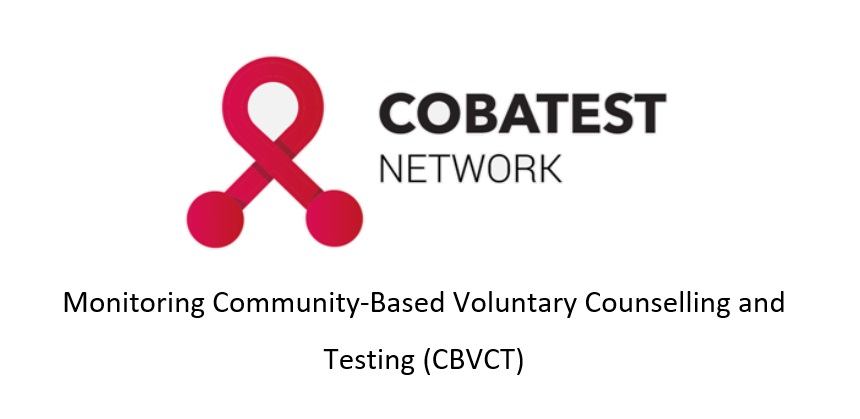
Отчёт VII Annual Meeting of the COBATEST NETWORK took place on January 25th and 26th at Ca l’Alier in Barcelona, bringing together more than 50 professionals from 23 countries across Europe and Central Asia. Representatives of the network’s member centres shared their experiences and discussed HIV/STI/HV testing and monitoring at community centres.
Representatives of the network’s coordinating organizations, Dr. Jordi Casabona from IGPT, CEEISCAT (Spain) and Christos Krasidis from Aids Action Europe (Germany) opened the meeting by welcoming all the participants. The members of the COBATEST Steering Committee were then introduced, along with the new members elected in the 2023 elections: Nino Tsereteli from the Center for Information and Counseling on Reproductive Health TANADGOMA (Georgia); and Mihai Lixandru from the Romanian Anti-AIDS Association (ARAS). An inspiring video by Laurel Sprague, Head of Community and Young Engagement at UNAIDS, was played, highlighting the importance of community testing in the fight against HIV/STI.


The network members presented research studies and reports on testing and prevention projects implemented in their respective countries. Arman Sahakyan and Sergey Grabielyan from the NGO New Generation Humanitarian (a new member from Armenia) presented on the HIV and STI prevention and treatment program for men who have sex with men, sex workers, and transgender individuals in Armenia. Maka Gogia from the Georgian Harm Reduction Network presented the “Lite-BBS” pilot program, which aims to increase the acceptance of STI/HIV tests and their linkage to the country’s prevention program. Meanwhile, Stefania Florentina Mihale from the Baylor Black Sea Foundation (Romania) shared the findings of a pilot study on HIV self-tests in Romania, which has been highly successful among young generation.
Dr. Megi Gogishvili from CEEISCAT summarized the activities implemented by COBATEST during 2023 and highlighted important findings from the 2022 data collected by COBATEST members. In 2022, 136,626 people were tested by 70 member centers, with over half of them (64.9%) being CIS men and 0.9% being transgender individuals. Forty percent of the tested individuals were men who have sex with men, and 25% of the total were under 25 years old. It is also notable that 1% of tested persons had reactive test results.

A flexible format was adapted for the last day of the meeting, with discussion tables organized by the participants themselves. Specifically each discussing topic was proposed during a brainstorming session among all participants on the first day of the meeting, and then led by the person who proposed it. Some of the issues addressed included Pre-Exposure Prophylaxis (PrEP) aand access to healthcare barriers faced by migrants, injectable antiretroviral therapies (ARTs), self-tests, testing minors, the difficulties with establishing Checkpoints, the integration of new services, and the effective use of online resources. At the end of the meeting, each discussion group shared their conclusions with all other participants in a common session, followed by a brief closing led by Dr. Laura Fernàndez-López from CEEISCAT (Spain) and Lella Cosmaro from the LILA Milano association (Italy), marking the end of the meeting.

The COBATEST Network not only drives standardized data collection and analysis to inform future interventions but also promotes information exchange and sharing best-practices among its members. Additionally, it facilities formation of international collaborations among CBVCTs. Currently, the network comprises 118 centres from 29 European countries and 2 from Central Asia. These centres offer their services outside conventional health facilities, often through field interventions, which facilitates access to testing and counselling for hard-to-reach vulnerable population groups.
Minutes and presentations are listed below:
Minutes:
Presentations:
- New Generation Humanitarian NGO, Armenia
- Грузияn Harm Reduction Network, Georgia
- Baylor Black Sea Foundation, Romania
- CEEISCAT, Spain


